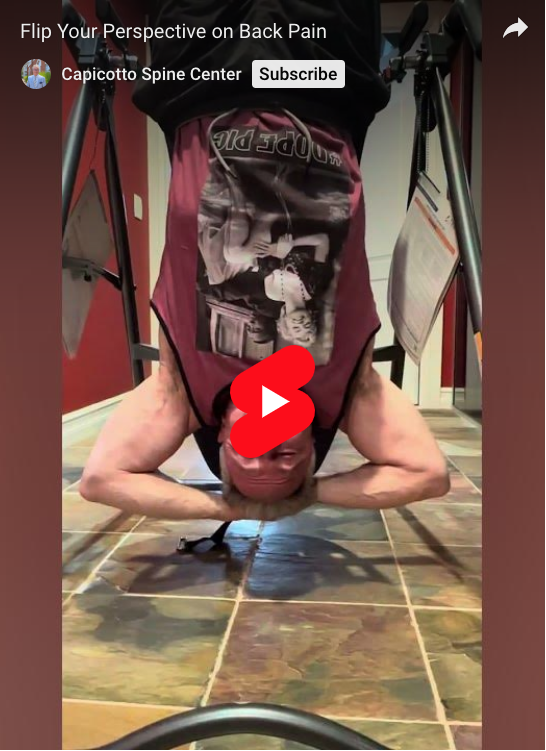
By age 40, it is completely normal to have some level of disc degeneration. In some cases, this process develops into degenerative disc disease which can result in varying levels of pain or discomfort. Are you unsure if degenerative disc disease is the source of your pain? The following are some of the related symptoms:
- Pain flares up after physical activity and then returns to a low level of discomfort or fades away completely
- You are experiencing a constant baseline level of discomfort or pain
- Activities that require bending, lifting and twisting worsen pain
- Walking, running and frequently changing positions can feel better than prolonged sitting and standing
- You strongly prefer reclined and flat, horizontal positions to sitting up straight or standing
If you and your doctor have determined that you do, in fact, have degenerative disc disease, you have many different treatment options to choose from.
Exercise
When it comes to degenerative disc disease, physical activity can be a great remedy. It encourages blood flow and builds the supporting structures around the affected discs. As a result, the impact of degeneration is not as acute. Obviously, when you are in a lot of pain it’s hard to begin exercising, but if you can find a way to temporarily relieve your pain and begin some form of low-impact exercise, you could see significant improvement and experience some relief while performing everyday activities. Never begin any type of exercise regimen without first consulting your doctor.
Control Pain and Reduce Inflammation
This can be accomplished with something as simple as the application of a cold compress. Additionally, non-steroidal anti-inflammatories (NSAIDs) like Aleve or Advil can provide significant relief when you take them with a pain reliever such as Tylenol. Talk to your doctor if these remedies don’t mitigate your pain, because stronger prescription medication may be beneficial in these cases.
Surgical Intervention
Most people with degenerative disc disease won’t end up requiring surgery. However, if you’ve tried non-surgical treatments for several months to no avail, you may want to consider the benefits of spine surgery. If you are among those that experience persistent pain after non-surgical treatments, you should look out for symptoms such as numbness, tingling, and loss of bowel and bladder control. If you notice these symptoms, talk to your doctor right away.



